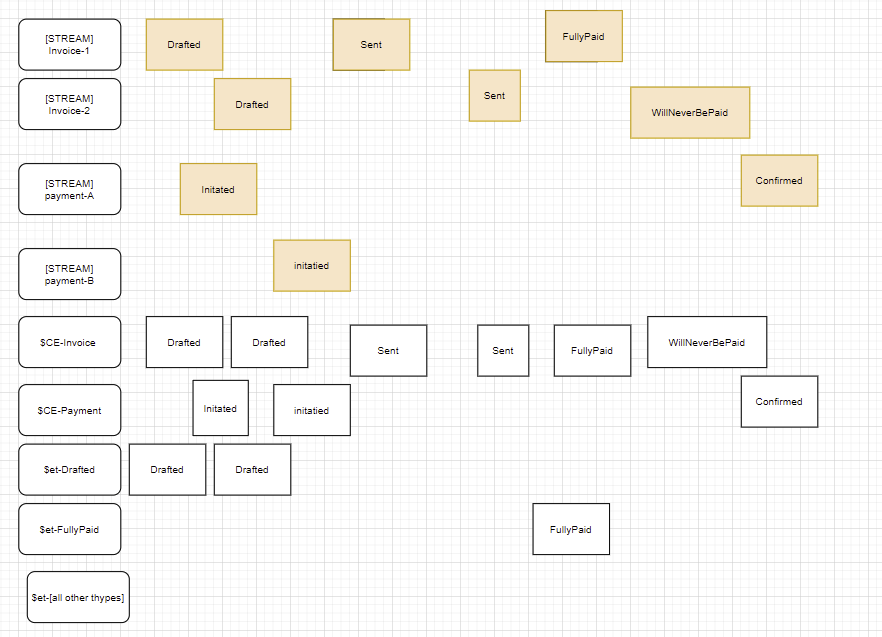I am new to EventStoreDB and I have created a event from Golang application and when I check it in the stream browser I see some of them under $ce-sample and some under $et-sample can any one please tell the difference or point me to the documentation
Thanks
@akhilravuri1, EventStoreDB provides the built-in projections. Read more: https://developers.eventstore.com/server/v21.10/projections/system-projections.html#enabling-system-projections.
$ce category keeps automatically links to all the streams from the specific category. They may contain configurable even, e.g. first events from each stream in the particular category. The category represents a prefix of your stream, e.g. reservation, invoice etc.
$et is a projection made by the event type. It links existing events from streams to a new stream with a stream id.
Thanks @oskar.dudycz
So If I set eventType It always goes to $et projection?
we cannot send it to $ce projection if entity is set right?
there is one $et-[EventType] stream per event type in the database
there is one $ce-[Category] per stream category in the database (categrory means anything before the first - in the stream name )
for instance:
So If I set eventType It always goes to $et projection?
you always have to set EventType
we cannot send it to $ce projection if entity is set right?
not sure what you mean by entity is set
Sorry not entity…Its event type
